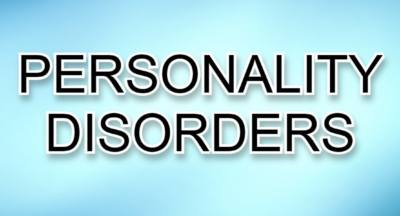
Understanding Counselling and Psychotherapy: Definitions, Differences, and Types
What is Counselling?
Counselling is a professional relationship between a trained counsellor and a client, aimed at helping the client explore and resolve personal, emotional, or psychological issues. It provides a safe and confidential space for individuals to discuss their concerns, gain insight into their feelings and behaviors, and develop coping strategies to improve their overall well-being.
There are several different definitions of counselling, but they all share the common goal of facilitating personal growth and positive change. Some definitions emphasize the supportive nature of counselling, while others highlight its problem-solving and goal-oriented approach.
What is Psychotherapy?
Psychotherapy is a form of therapy that focuses on helping individuals with more complex and deep-rooted psychological issues. It involves a therapeutic process that aims to increase self-awareness, promote personal development, and alleviate emotional distress.
Like counselling, psychotherapy also involves a professional relationship between a therapist and a client. However, it typically involves a longer-term commitment and a deeper exploration of the client’s thoughts, feelings, and behaviors.
Difference Between Counselling and Psychotherapy
The main difference between counselling and psychotherapy lies in the scope and depth of the issues addressed. Counselling is generally more short-term and focuses on specific problems or concerns, such as relationship issues, grief, or stress management. Psychotherapy, on the other hand, is often more long-term and deals with more complex psychological issues, such as trauma, personality disorders, or deep-seated emotional patterns.
While there is some overlap between the two, it is important to choose the right approach based on your specific needs and goals. A trained professional can help you determine which option is most suitable for you.
Different Types of Counselling
There are various types of counselling approaches, each with its own theoretical framework and techniques. Some common types include:
- Cognitive-Behavioral Therapy (CBT): Focuses on identifying and changing negative thoughts and behaviors that contribute to emotional difficulties.
- Psychodynamic Therapy: Explores unconscious patterns and unresolved conflicts that may be influencing current thoughts, feelings, and behaviors.
- Humanistic Therapy: Emphasizes self-exploration, personal growth, and the individual’s capacity for self-actualization.
- Family Therapy: Involves working with families to improve communication, resolve conflicts, and strengthen relationships.
The Counselling Process
The counselling process typically involves several stages:
- Assessment: The counsellor gathers information about the client’s concerns, history, and goals to understand their unique situation.
- Goal Setting: The client and counsellor collaborate to establish clear and achievable goals for the counselling sessions.
- Exploration: The client explores their thoughts, feelings, and behaviors in a safe and non-judgmental environment.
- Intervention: The counsellor provides support, guidance, and appropriate techniques to help the client address their concerns and work towards their goals.
- Evaluation: The progress is regularly reviewed, and adjustments are made to the counselling approach if necessary.
Directive Counselling and Non-Directive Counselling
Directive counselling and non-directive counselling are two different approaches within the field of counselling:
Directive Counselling: In this approach, the counsellor takes an active role in guiding the client towards specific goals and solutions. They may provide advice, suggestions, and practical strategies to address the client’s concerns.
Non-Directive Counselling: Also known as client-centered or person-centered counselling, this approach emphasizes empathy, active listening, and unconditional positive regard. The counsellor creates a supportive environment where the client can freely explore their feelings and thoughts without judgment or direction.
How to Choose a Counsellor?
Choosing a counsellor is an important decision that should be based on several factors:
- Qualifications and Credentials: Ensure the counsellor is licensed and has the necessary training and experience in the specific areas you need assistance with.
- Approach and Compatibility: Consider the counselling approach that aligns with your preferences and values. It is essential to feel comfortable and connected with the counsellor to establish a trusting therapeutic relationship.
- Referrals and Recommendations: Seek recommendations from trusted sources, such as friends, family, or healthcare professionals, who have had positive experiences with a particular counsellor.
- Cost and Accessibility: Consider the cost of counselling sessions and whether the counsellor’s location, availability, and mode of therapy (in-person or online) are convenient for you.
Becoming a Self-Counsellor
While seeking professional counselling is often beneficial, there are also ways to become a self-counsellor and practice self-care:
- Self-Reflection: Take time to reflect on your thoughts, feelings, and behaviors. Engage in journaling or mindfulness practices to gain insight into your emotional well-being.
- Self-Help Resources: Utilize self-help books, online resources, or support groups to learn coping strategies and gain a better understanding of your concerns.
- Self-Care Practices: Prioritize activities that promote your well-being, such as exercise, healthy eating, adequate sleep, and engaging in hobbies or activities you enjoy.
- Seeking Support: Reach out to trusted friends or family members for emotional support and guidance when needed.
Remember, self-counselling can be beneficial for personal growth and managing everyday challenges, but it is essential to seek professional help when dealing with more complex or persistent issues.
In conclusion, counselling and psychotherapy are valuable resources for individuals seeking support, guidance, and personal development. Understanding the definitions, differences, and various types of counselling approaches can help individuals make informed decisions about their mental health and well-being.
Related Posts
Understanding Cognitive Behavioral Therapy (CBT) Principles
https://www.youtube.com/watch?v=S_eHD4Wi7do Introduction Cognitive Behavioral...
Understanding Cognitive Behavioral Therapy (CBT) and Its Key Concepts
Cognitive Behavioral Therapy (CBT) is a widely recognized and evidence-based form...
Understanding Personality Disorders and the DSM-5-TR
Introduction The Diagnostic and Statistical Manual of Mental Disorders, 5th...
Understanding Anxiety Disorders According to DSM-5-TR
What is the Diagnostic and Statistical Manual of Mental Disorders-5-TR? The...





